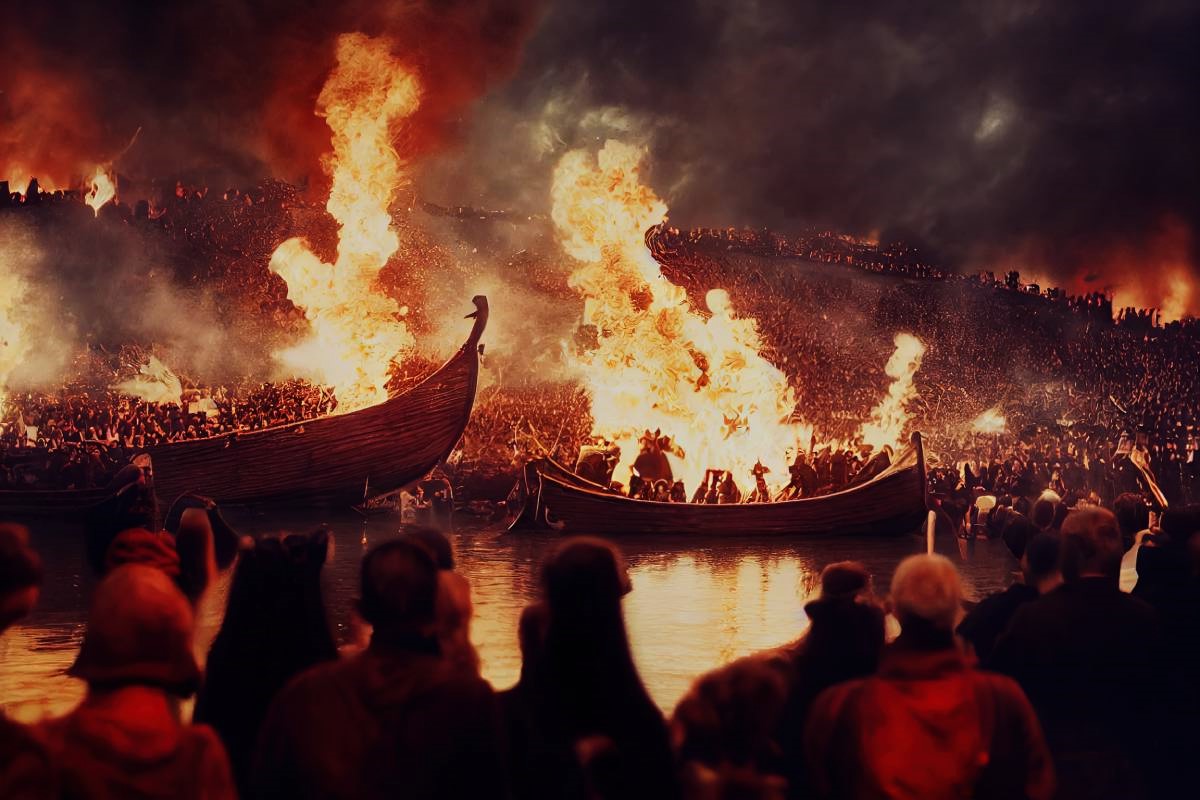
Did you know the Second Viking Raid in Portugal happened in 844 AD? This event marked a significant moment in Portuguese history. Vikings, known for their fierce and relentless nature, set their sights on the Iberian Peninsula. They arrived with longships, ready to plunder and conquer. The raid targeted the coastal regions, causing widespread fear and chaos among the local population. Despite the Vikings' reputation, the Portuguese showed resilience. They fought back, defending their land with courage and determination. This clash between the seafaring Norsemen and the Iberian defenders left a lasting impact on the region's history and culture.
Key Takeaways:
- The second Viking raid in Portugal in 844 AD showcased the fearsome reputation and seafaring skills of the Norse warriors, leaving a lasting impact on Lisbon and the Iberian Peninsula.
- Despite the Moors' successful defense, the raid prompted cultural exchanges and influenced local folklore, highlighting the historical significance of the Viking incursion in Portugal.
The Second Viking Raid in Portugal: An Overview
The second Viking raid in Portugal is a fascinating chapter in history. These Norse warriors left a significant mark on the Iberian Peninsula. Here are some intriguing facts about this event.
The Vikings' Arrival
The Vikings' arrival in Portugal was marked by their fierce reputation and seafaring prowess.
- The second Viking raid in Portugal occurred in 844 AD.
- Vikings targeted the city of Lisbon, known as Al-Ushbuna during the Moorish rule.
- They arrived in longships, which were fast and could navigate both open seas and shallow rivers.
- The raid was part of a larger series of Viking incursions into the Iberian Peninsula.
The Impact on Lisbon
Lisbon, a key city, faced significant challenges during the Viking raid.
- Vikings laid siege to Lisbon, causing widespread panic among its inhabitants.
- The city's defenses were tested, but the Moors managed to repel the Viking attackers.
- Despite the defense, the raid caused considerable damage to the city's infrastructure.
- The Vikings' attack on Lisbon highlighted the city's strategic importance.
The Moors' Response
The Moors, who ruled much of the Iberian Peninsula, had to respond swiftly to the Viking threat.
- The Moors organized a robust defense to protect their territories from Viking incursions.
- They utilized their knowledge of the terrain to outmaneuver the Viking forces.
- Moorish forces managed to capture several Viking ships during the raid.
- The Moors' successful defense against the Vikings boosted their morale and solidified their control over the region.
Viking Tactics and Strategies
The Vikings were known for their unique tactics and strategies during raids.
- They employed hit-and-run tactics, striking quickly and retreating before a counterattack could be organized.
- Vikings used psychological warfare, creating fear and confusion among their enemies.
- Their longships allowed them to strike at multiple locations along the coast.
- The Vikings' adaptability made them formidable opponents in battle.
The Aftermath of the Raid
The aftermath of the second Viking raid in Portugal had lasting effects on the region.
- The raid prompted the Moors to strengthen their coastal defenses.
- It led to increased vigilance and preparedness among the Iberian cities.
- The Vikings' failure to capture Lisbon did not deter them from future raids in the region.
- The raid contributed to the legend and mystique of the Viking warriors.
Cultural Exchange and Influence
Despite the conflict, the Viking raids led to some cultural exchanges between the Norse and the Iberian people.
- Some Vikings who were captured or settled in the region influenced local culture and customs.
- The raids introduced new weaponry and tactics to the Iberian Peninsula.
- Trade between the Norse and Iberian people increased in the following years.
- The Viking presence in the region left a lasting impact on local folklore and legends.
Historical Significance
The second Viking raid in Portugal holds significant historical importance.
- It marked one of the earliest recorded Viking incursions into the Iberian Peninsula, showcasing the reach and ambition of the Norse warriors.
The Final Raid
The second Viking raid in Portugal left a lasting mark on history. These Norse warriors, known for their seafaring prowess, ventured far from their homeland, reaching the Iberian Peninsula. Their raids were not just about plunder but also about establishing their presence and influence. The Portuguese coast, with its strategic location, became a prime target. The Vikings' interactions with the local populations led to a blend of cultures, leaving behind artifacts and stories that still intrigue historians today. Understanding these raids helps us appreciate the complexities of medieval Europe and the far-reaching impact of Viking expeditions. Their legacy, though often seen through the lens of violence, also includes contributions to trade, navigation, and cultural exchange. The second Viking raid in Portugal is a testament to the enduring spirit of exploration and the interconnectedness of our past.
Frequently Asked Questions
Was this page helpful?
Our commitment to delivering trustworthy and engaging content is at the heart of what we do. Each fact on our site is contributed by real users like you, bringing a wealth of diverse insights and information. To ensure the highest standards of accuracy and reliability, our dedicated editors meticulously review each submission. This process guarantees that the facts we share are not only fascinating but also credible. Trust in our commitment to quality and authenticity as you explore and learn with us.
